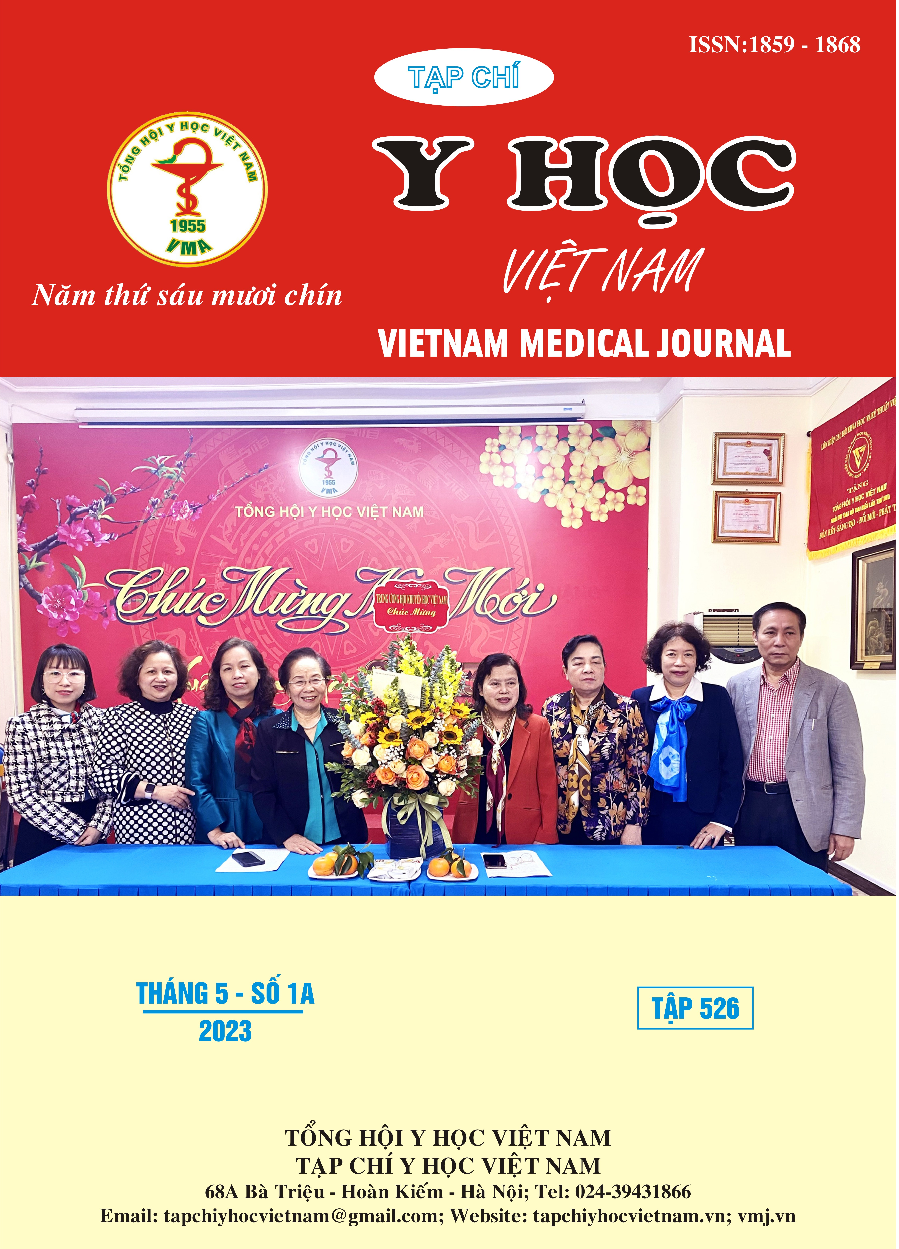EVALUATION OF THE RERULTS OF LAPAROSCOPIC SURGERY FOR INGUINAL REPAIR BY USING SELF-ADHESIVE MESH
Main Article Content
Abstract
Background: Laparoscopic surgery for inguinal hernia repair with self-fixating mesh is a new field applied in a few medical facilities in Vietnam. The purpose of this study to evaluate the results of laparoscopic surgery using self-adhesive mesh to treat inguinal hernia at Thai Binh province general hospital. Patients and Method: This is a retrospective study on 95 male patients, who was diagnosed with unilateral inguinal hernia and treated by laparoscopic surgery for inguinal hernia repair with transabdominal preperitoneal (TAPP) technique and using self-adhesive mesh. The study was conducted between June 2020 and June 2023 at the Thai Binh General Hospital. Results: The mean age was 59.5 ± 14.5 years old, the youngest was 21, the oldest was 86 years old. The location of inguinal hernia was 54(56.8%) patients on the right side and 41(43.2%) patients with left hernia. The indirect hernia was predominant with 71(74.7%) patients , the direct hernia 20(21.1%) patients and mixed form was 4(4.2%) patients. The average surgical time was 62.6±13.1 minutes; The shortest 30 minutes, the longest 100 minutes. 100% of patients did not have intra-operation accidents and did not place drainage in the surgical area. There were no patients who needed to change surgical methods. The rate of early complications after surgery of the study was 4.3%, urinary retention in 3(3.2%) patients, inguinal scrotal fluid collection in 1(1.1%) patient during hospital stay. The mean recovery time was 1.8 ± 0.8 (days). The average postoperative hospital stay was 5.3 ± 1.3 days, the shortest being 2 days, the longest being 11 days. The study found 5(5.3%) patients had complications at 3 months after surgery were chronic pain in the groin area, of which 3 patients (3.2%) had pain and numbness in the groin area. At the end of the study, an average of 17.2 months was recorded, 3(3.2%) patients had distant complications with chronic pain in the groin area. There were no patients to record hernia relapse. Conclusion: Treatment of inguinal hernia by laparoscopic surgery transabdominal preperitoneal (TAPP) by using self-adhesive mesh is a safe and effective surgery.
Article Details
Keywords
Laparoscopic inguinal hernia surgery, TAPP surgery, self-adhesive mesh
References
2. Birk, D., S. Hess, and C. Garcia-Pardo, Low recurrence rate and low chronic pain associated with inguinal hernia repair by laparoscopic placement of Parietex ProGrip mesh: clinical outcomes of 220 hernias with mean follow-up at 23 months. Hernia, 2013. 17(3): p. 313-20.
3. Zhu, X., et al., A study of the "Swiss-roll" folding method for placement of self-gripping mesh in TAPP. Minim Invasive Ther Allied Technol, 2022. 31(2): p. 262-268.
4. Jan, Z., et al., Comparison of Common Postoperative Complications Between Lichtenstein Open Repair and Laparoscopic Transabdominal Pre-peritoneal (TAPP) Repair for Unilateral Inguinal Hernia. Cureus, 2021. 13(9): p. e17863.
5. Klobusicky, P. and D. Hoskovec, Reduction of chronic post-herniotomy pain and recurrence rate. Use of the anatomical self-gripping ProGrip laparoscopic mesh in TAPP hernia repair. Preliminary results of a prospective study. Wideochir Inne Tech Maloinwazyjne, 2015. 10(3): p. 373-81.


